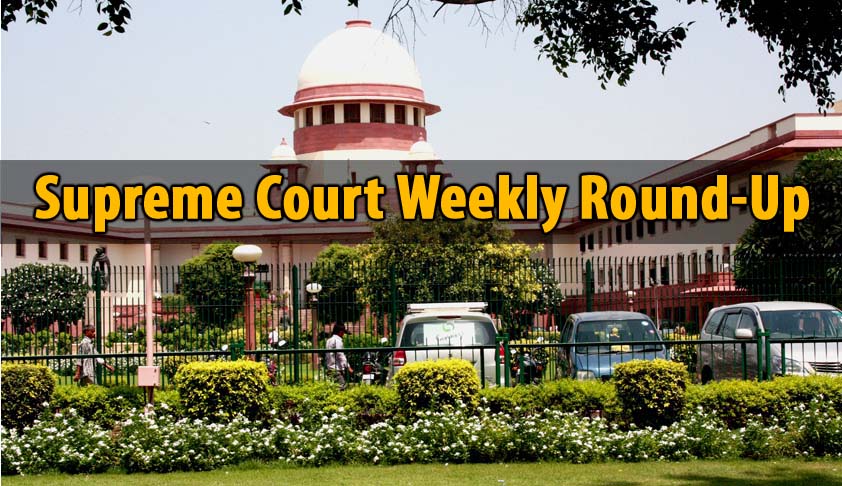- Home
- /
- Top Stories
- /
- Supreme Court Weekly Round-Up
Supreme Court Weekly Round-Up
Abdullah Karuthedakam
6 July 2014 5:43 PM IST
A Supreme Court bench comprising of Justice T.S. Thakur and Justice C. Nagappan in a judgment observed that the appellant who is an accused person cannot be deprived of hearing on the face of the express provision contained in Section 401(2) of the Code and on this ground, setting aside an order of the High Court and remitting the matter.The Supreme Court, has delivered a much awaited...
Next Story



